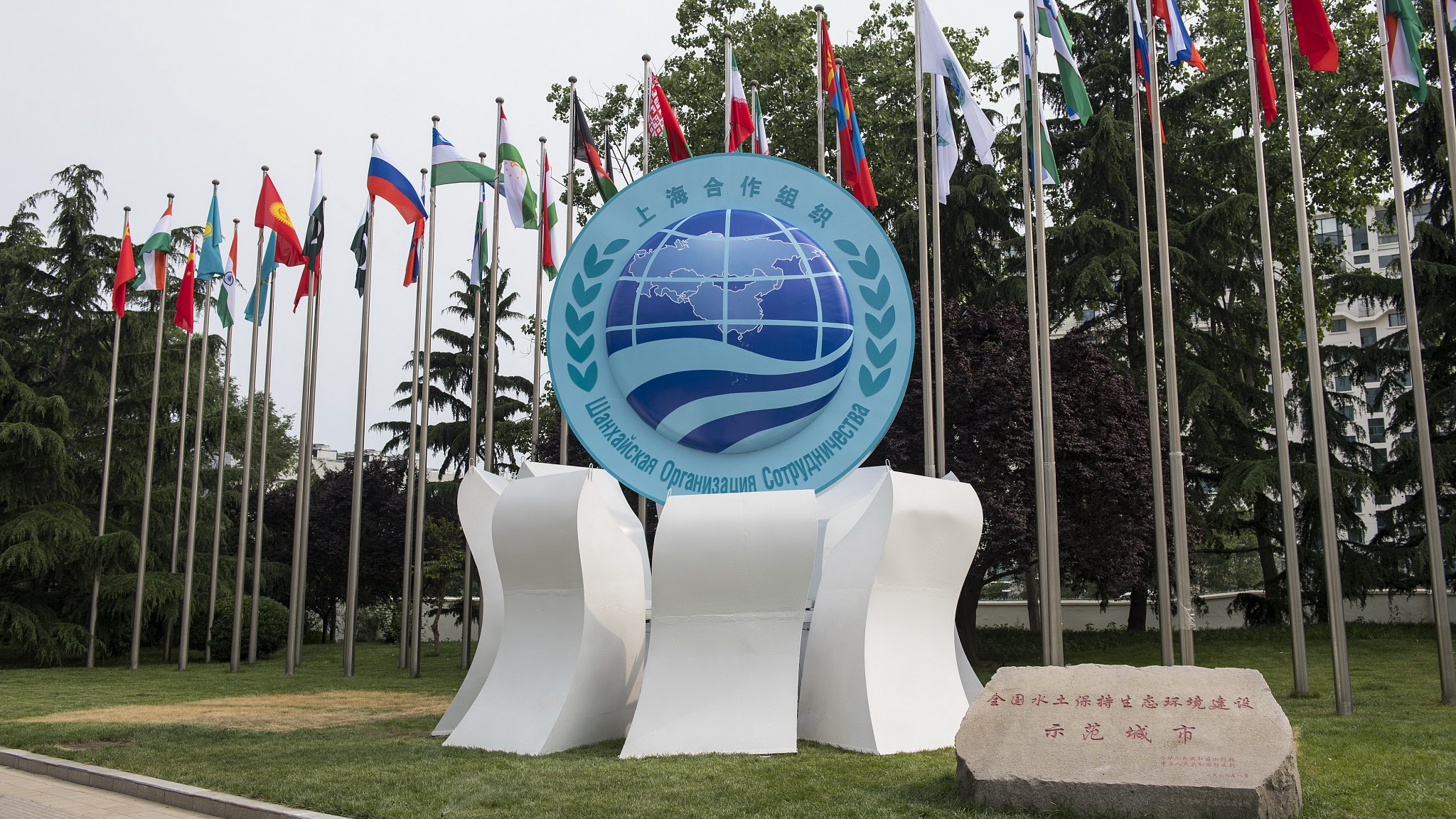
National flags seen before a meeting of foreign ministers of the SCO member states with Tajikistan's President Emomali Rahmon, Dushanbe, Tajikistan, July 14, 2021. /Getty
National flags seen before a meeting of foreign ministers of the SCO member states with Tajikistan's President Emomali Rahmon, Dushanbe, Tajikistan, July 14, 2021. /Getty
Editor's note: Yuan Sha is an assistant research fellow in the department of American studies at the China Institute of International Studies. A former Fulbright scholar at Columbia University, she has a PhD in International Politics from China Foreign Affairs University. Yuan has published several papers on China-U.S. security relations in Chinese academic journals and regularly contributes to many Chinese media outlets. The article reflects the author's opinions and not necessarily the views of CGTN.
The 21st Meeting of the Council of Heads of State of the Shanghai Cooperation Organization (SCO) is to be held this week in Dushanbe, Tajikistan. Given the heightened security risks in the aftermath of the U.S.-led withdrawal from Afghanistan, this meeting is much-anticipated to take on the responsibility of bringing stability and prosperity to the region.
SCO at 20
This year marks the 20 years anniversary of the September 11 terrorist attacks and the American-led war in Afghanistan. It also marks the 20 years anniversary of the founding of the SCO. The two developments were separate but correlated, which were both the result of the rising terrorist threats in the post-Cold War era.
In the hinterland of the Eurasian mass, Central Asia has long acted as the bridge between East and West where different ethnicities, religions and cultures meet and create splendid civilization. It was also the critical route along the Ancient Silk Road where trade prospered and cultural exchanges were vibrant. Due to geopolitical reasons, the region has also been haunted with the "three evils" of separatism, extremism and terrorism.
The SCO was founded in June 2001 on the very goal of cooperation on security matters in the region. Over the past two decades, the organization has evolved into an influential regional security forum with eight member countries including China, Russia, Tajikistan, Kazakhstan, Kyrgyzstan, Uzbekistan, Pakistan and India, which covers 60 percent of the Eurasian continent and boasts 40 percent of the world population and 20 percent of the global GDP.
As a new type of regional partnership, the SCO is different from the confrontational-style alliances of the Western bloc. Instead, it is premised on political dialogue and consensus building for the purpose of collectively responding to common security challenges in the region. Although members harbor different interests and concerns, they share the common goal of maintaining stability and prosperity in the region. The joining of India and Pakistan as full members of SCO in 2017 and countries in the wider Central Asia and Middle East as observers and partners is an exemplar of this inclusive endeavor.

A view from the site of the Shanghai Cooperation Organization summit. /VCG
A view from the site of the Shanghai Cooperation Organization summit. /VCG
Afghanistan puts the SCO to a new test
The Afghan peace and rehabilitation will be a top priority on this summit's agenda. The fallout from the botched withdrawal of U.S.-led NATO forces has worsened situation on the ground. The Western military intervention and then irresponsible desertion brought untold sufferings to the Afghan people. It has also created negative externalities of refugee overflow, rising terrorism, and spreading COVID-19 virus to the wider region.
The situation in Afghanistan puts the SCO to a new test. As close neighbors of Afghanistan, the member countries are key stakeholders in the stability of the country. In fact, the SCO has set up a SCO-Afghanistan Contact Group in 2005, which is tasked to the peace process and national reconciliation of country. Afghanistan joined the SCO as an observer state in 2012, rending the organization innate responsibility on this issue.
The terrorist attacks at Kabul airport raised alarm across the region, as the members are concerned about rising terrorism and other security risks. Given the high stakes of maintaining stability in the region, the SCO is regarded as the most appropriate and useful platform on this issue.
Due to the complexity of the Afghan affairs, there is no quick remedy, but concrete efforts to bring situation on the ground to stability. The immediate task is political consultation and diplomatic cooperation to ensure the safety of Afghan people and foreigners in the country. Humanitarian aid of essential goods, PPEs and vaccines for the COVID-19 pandemic is also much needed to help Afghan people to return to normal life and rebuild their country. China has already offered to provide desperately needed food and emergency materials worth of 200 million yuan ($31 million) to the Afghan people, including 3 million doses of COVID-19 vaccines.
It is also urgent to prevent various types of terrorist groups, drug cartels and crime organizations from taking advantage of the transitional instability. The SCO members conducted a counter-terrorism military exercise dubbed "Peace Mission 2021," which is a fresh attempt to this collective security effort.
Over the long term, the regional countries need to come up with a common solution toward peace and rehabilitation of Afghanistan. Empires came, conquered, and failed. Afghan people demonstrated the strong will and tenacity to safeguard their independence sovereignty. The Western-imposed intervention failed disastrously. It is time to facilitate the Afghan-led and Afghan-owned peace process championed by SCO members and help build a favorable condition for Afghan people to choose a path of their own.
(If you want to contribute and have specific expertise, please contact us at opinions@cgtn.com.)

